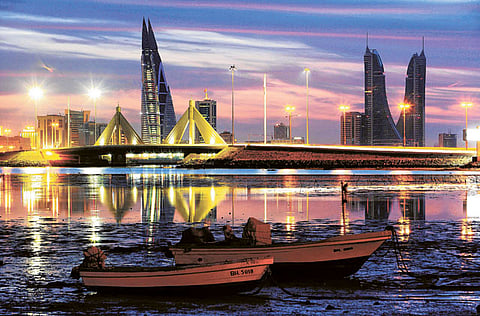Political challenges affect Bahrain rank
With a few exceptions, Bahrain's economy has suffered in its recent performance in international indices

With a few exceptions, Bahrain's economy has suffered in its recent performance in international indices. Certainly, this is challenging, as the country continues to struggle to find a solution to the most serious political challenge since independence from Britain in 1971.
Only last week, Bahrain celebrated the 40th anniversary of its independence amidst an ongoing political crisis. The challenge emerged in mid-February, with demonstrators taking to the streets, calling for democratic changes in the kingdom. The demands included focusing on the formation of an elected government and a fully-empowered legislative body as well as equal opportunities for all.
Looking at positive developments, Bahrain was the only Gulf Cooperation Council (GCC) country that succeeded in improving its ranking in the 2011 version of Corruption Perceptions Index (CPI). The kingdom advanced by two notches to arrive at position 46 globally, behind fellow GCC states of Qatar and the UAE. Transparency International issues the annual CPI ranking countries based on perceived or known corrupt practices when it comes to winning business favours.
Turning to adverse results, Bahrain's ranking dropped three notches to number 42 globally on the Human Development Index.
Tourism sector
Nevertheless, Bahrain ranked behind the UAE and Qatar in the annual survey that relies on three variables — life expectancy at birth, education and income.
Also, Bahrain saw its performance declining sharply in the Doing Business 2012, an annual survey published by the World Bank and the International Finance Corporation. In fact, Bahrain's rank dropped five notches, the worst among the GCC states.
In addition, Bahrain's tourism showed a weak performance in The E&Y Middle East Hotel Benchmark Survey, produced by global consulting firm Ernst and Young. More specifically, hotels reported a 60 per cent drop in business in the first eight months of 2011, again the worst amongst GCC economies.
Ostensibly, plenty of evidence provides understanding for the poor performance, including Bahrain's loss of right to host the Formula One Championship this year. Traditionally, F1 contributes to Bahrain's economy through spending on ticket sales, television coverage, transport, accommodation, food and beverages, merchandise and souvenirs, and other leisure activities.
Manama Dialogue
Also, organisers of the Manama Dialogue have cancelled the 2011 version of this exceptional activity dealing with security and other socio-political and socio-economic challenges facing the region. Traditionally, the year-end event attracts the highest number of dignitaries to the kingdom.
Another contributor to this performance is the apparent drop in the number of Saudi visitors to Bahrain via the King Fahd causeway. While statistics are not available, it is not difficult for those living in Bahrain to see a material drop in the number of Saudi cars wandering around the country during the weekend. Thousands of Saudis tend to cross the causeway during the weekends, partly to enjoy the liberal lifestyle in Bahrain. Certainly, the blame lies with fear of loss of security.
In reality, Saudis are leading clients for numerous types of businesses in Bahrain including hotels, restaurants and, of course, shopping malls with all their amenities, notably cinemas. Yet, alternative places to Bahrain are available, helped partly by mushrooming of budget airlines.
Need to find way out
Last but not least, the 2011-2012 Global Competitiveness Report ranks Bahrain as the least competitive economy among the GCC. The ranking chiefly reflects the success of some GCC countries advancing their ranking at the expense of Bahrain, which in turn saw no change in its position.
Against this backdrop, the authorities and political forces need to find a way out of the political challenges, if only because the country's economy cannot sustain further losses.
The writer is a Member of Parliament in Bahrain.



